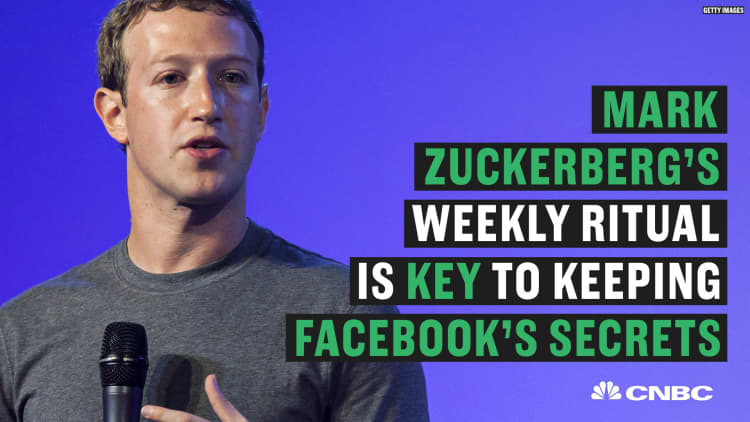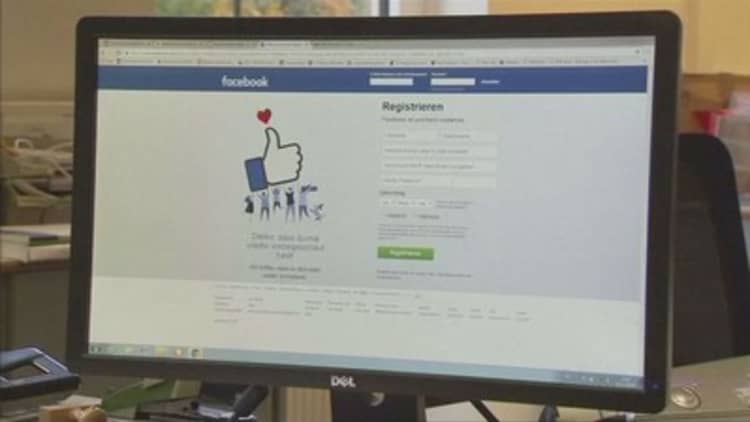How you use Facebook affects how you feel.
So says Mark Zuckerberg, the billionaire tech titan who founded the social media behemoth.
When you use Facebook to talk to your friends and family, you feel better, says Zuckerberg, but when you use it to scroll through videos and posts passively, you don't, necessarily.
"The research shows that when we use social media to connect with people we care about, it can be good for our well-being. We can feel more connected and less lonely, and that correlates with long-term measures of happiness and health," Zuckerberg writes, in a post published to his personal Facebook page Thursday.
"On the other hand, passively reading articles or watching videos — even if they're entertaining or informative — may not be as good," Zuckerberg says.
The comments about how to use Facebook productively came as the CEO announced a change in the algorithm that determines what users see in their newsfeeds. Facebook will, going forward, move away from showing posts from businesses, brands and media. Instead, Facebook will prioritize posts from friends and family in users' feeds.
"We feel a responsibility to make sure our services aren't just fun to use, but also good for people's well-being," Zuckerberg writes.
In the short-term, the change may mean users spend less time on the platform. But in the long-run, Zuckerberg says the change is better for the health of the company.
"Now, I want to be clear: By making these changes, I expect the time people spend on Facebook and some measures of engagement will go down," Zuckerberg says. "But I also expect the time you do spend on Facebook will be more valuable. And if we do the right thing, I believe that will be good for our community and our business over the long-term, too."
This is the second time in as many months Facebook has acknowledged that using the platform may not be good for you.

Last month, Facebook's director of research, David Ginsberg, and research scientist Moira Burke published a blog post detailing how the way you use Facebook affects how you feel.
"In general, when people spend a lot of time passively consuming information — reading but not interacting with people — they report feeling worse afterward," the December blog post from Ginsberg and Burke reads. They cite a study from the University of Michigan and another from UC San Diego and Yale, both of which demonstrated that users who used Facebook passively reported feeling worse afterward.
"Though the causes aren't clear, researchers hypothesize that reading about others online might lead to negative social comparison — and perhaps even more so than offline, since people's posts are often more curated and flattering. Another theory is that the internet takes people away from social engagement in person," Ginsberg and Burke write.
Meanwhile, as Zuckerberg said Thursday, using Facebook to interact with specific people who you care about makes you feel better, they found.
"Actively interacting with people — especially sharing messages, posts and comments with close friends and reminiscing about past interactions — is linked to improvements in well-being," Ginsberg and Burke write.
See also:
Facebook just admitted that using Facebook can be bad for you
Facebook is massively changing its News Feed, and it may mean people spend less time on it

Like this story? Like CNBC Make It on Facebook.


